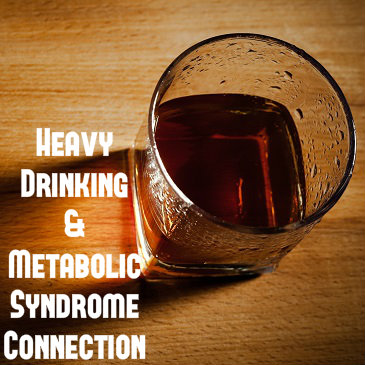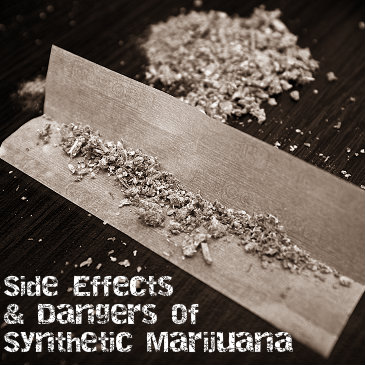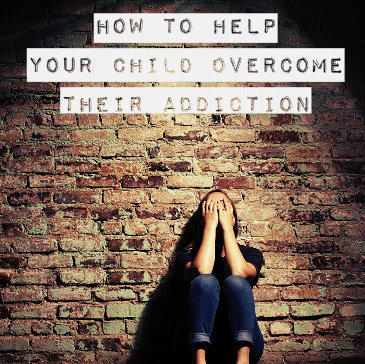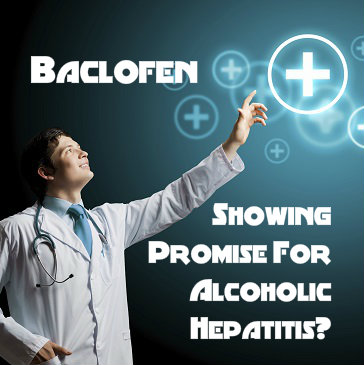22 Aug / 2014
Heavy Drinking Tied To Metabolic Syndrome
Metabolic syndrome is the term that doctors and public health officials use to describe a collection of health concerns that significantly increase your chances of dying from heart disease or certain other causes. While some of the risks associated with heavy alcohol consumption are well established, researchers know relatively little about the potential connection between heavy drinking and the development of this syndrome. In a study published in May 2014 in the journal Alcoholism: Clinical & Experimental Research, researchers from Japan’s Hyogo College of Medicine assessed the impact that excessive alcohol intake has on the metabolic syndrome risks of middle-aged men.
Metabolic Syndrome
 Metabolic syndrome gets its name because it involves changes in your normal metabolism, or the processing of chemical reactions inside the brain and body. Strictly speaking, the syndrome is not an illness; instead, it is a collection of risk factors for illness.
Metabolic syndrome gets its name because it involves changes in your normal metabolism, or the processing of chemical reactions inside the brain and body. Strictly speaking, the syndrome is not an illness; instead, it is a collection of risk factors for illness.
Specific factors involved in the onset of metabolic syndrome can include having a tendency to carry significant amounts of excess weight around your midsection, having a high count of a bloodborne fat called triglyceride, having low blood levels of HDL or “good” cholesterol (which removes excess LDL or “bad” cholesterol from your bloodstream), having abnormally high blood glucose or blood sugar levels and having unusually high blood pressure. As a rule, doctors consider making a diagnosis in people affected by a minimum of three of these risk factors.
Compared to the general population, a person with metabolic syndrome has a roughly 100 percent greater chance of developing some form of heart disease, the National Heart Lung and Blood Institute reports. The presence of the syndrome also increases the odds for developing type 2 diabetes by about 400 percent. Physical concerns most commonly associated with a metabolic syndrome diagnosis include maintaining a sedentary lifestyle and carrying enough body weight to qualify as overweight or obese. Other potential concerns include having an unusual resistance to the blood sugar-lowering effects of a human hormone called insulin, being older and having a genetic predisposition toward risk factors for the condition.
Excessive Or Heavy Drinking
Heavy drinking is a public health term used to describe excessive alcohol consumption on any given day or over the course of any given week. Men partake in this form of consumption when they drink more than four servings of alcohol per day or more than 14 servings per week. Women partake in heavy drinking when they consume more than three servings of alcohol per day or more than seven servings per week. Some heavy drinkers also qualify as binge drinkers by consuming enough alcohol to reach a legally intoxicated state in a single, fairly brief bout of alcohol intake. Participation in heavy drinking is conclusively linked with increased risks for developing diagnosable problems with alcohol abuse and/or alcoholism.
Examining The Connection Between Heavy Drinking And Metabolic Syndrome
In the study published in Alcoholism: Clinical & Experimental Research, the Japanese researchers used an assessment of a group of middle-aged men to compare the risks for metabolic syndrome among people in this age group who don’t drink alcohol, occasionally drink heavily and regularly drink heavily. For the purposes of the study, heavy drinking was defined as the consumption of at least 66 grams (2.3 oz) of pure alcohol on any given day when alcohol intake occurred. This is equivalent to the amount of alcohol in 3.8 standard drinks.
The researchers concluded that, compared to middle-aged men who don’t drink, men in this age group who occasionally participate in heavy drinking have a roughly 94 percent higher chance of developing metabolic syndrome. They also concluded that middle-aged men who regularly participate in heavy drinking have a roughly 48 percent higher chance of developing the syndrome. The occasional heavy drinkers are considerably more likely than their non-drinking counterparts to carry significant amounts of excess weight around their midsections. The regular heavy drinkers are considerably less likely than their non-drinking counterparts to have high blood sugar levels.
It may seem odd that occasional heavy drinkers apparently have substantially higher chances of developing metabolic syndrome than regular heavy drinkers. The study’s authors tentatively attribute this counterintuitive finding to the lowered risks for high blood sugar among people who regularly consume excessive amounts of alcohol, as well as to the increased risks for abdominal obesity among people who occasionally consume excessive amounts of alcohol. The authors also specifically note that the cardiovascular (heart and blood vessel) risks for metabolic syndrome apply to both occasional and regular heavy drinkers.
21 Aug / 2014
Synthetic Marijuana And Its Dangerous Side Effects
There is something about the name “synthetic marijuana” that sounds safe. If traditional marijuana is potentially dangerous with risk for abuse, not to mention illegal, certainly the synthetic should be the healthy or at least harmless alternative, right? Not so fast. Read on to educate yourself about synthetic marijuana side effects and dangers.
What Is Synthetic Marijuana?
 Synthetic marijuana is one substance from a family of what are known as “designer drugs.” Instead of marijuana in its natural plant form, this is a lab-created product intended to reproduce the high associated with marijuana. By creating a synthetic form of marijuana, producers, dealers and users believed they had landed on a product that would escape government sanction as well as urinalysis.
Synthetic marijuana is one substance from a family of what are known as “designer drugs.” Instead of marijuana in its natural plant form, this is a lab-created product intended to reproduce the high associated with marijuana. By creating a synthetic form of marijuana, producers, dealers and users believed they had landed on a product that would escape government sanction as well as urinalysis.
Known as K2 and spice, synthetic marijuana contains natural herbs that have been sprayed with a cannabinoid substance. While the pot-like high that the drug produces is due to the effect on the body of the same kinds of chemicals found in natural THC, it is not the same. And it is certainly not safer.
Side Effects And Dangers Of Synthetic Marijuana
The effects of synthetic marijuana will, to some degree, mimic traditional marijuana, but with some unique and often unintended consequences. For reasons not completely understood, the effect of smoking marijuana in its natural leaf form is distinct from smoking herbs sprayed with the chemicals contained within marijuana. This has led producers, users and scientists to conclude that there is more to the high and effect of traditional marijuana than the cannibinoids present in THC.
There are several synthetic marijuana dangers that users and potential users are often unaware of. Many individuals will use the drug expecting the results they are accustomed to with traditional marijuana. But with synthetic marijuana, the high is often more potent and completely unpredictable.
The side effects and dangers of synthetic marijuana that many do not anticipate, and that are rarely associated with the use of traditional marijuana, may include:
- various forms of psychosis
- hypertension
- seizures
- convulsions
- heart attack
- stroke
- blindness
- death
even in users who are young and in otherwise good health.
Synthetic weed also carries risk because of the mystery that surrounds its composition. The blend is not proprietary and each blend that a user obtains may contain any mix of unknown chemicals in unknown quantities, producing vastly different results from one high to the next. It is also especially difficult for medical professionals to treat overdoses and adverse effects given that the chemicals contained within the mixture the patient has taken may be unknown and unpredictable.
Synthetic marijuana is not a safe product and its use carries great risk. If you or someone you know struggles with addiction to synthetic marijuana or you are concerned about your use, do not delay in seeking help. Synthetic marijuana is not a harmless, legal substitute for an illegal drug; it carries dangers and side effects that may be far more severe than the drug it was designed to mimic. Withdrawal symptoms can also be powerful and unanticipated and for this reason it is recommended that users and addicts seek the care and supervision of a medical professional and/or a drug rehabilitation treatment program to safely get off and stay off synthetic marijuana.
Find Out How Synthetic Marijuana Use Is Rising Among Troops
20 Aug / 2014
How To Trust An Addict In Recovery
When you have had to cope with having a loved one struggle with addiction, you learn what it means to lose faith in someone. Addicts tend to abuse the trust of those they love when they’re wrapped up in their illness. Your loved one probably used and lied to you, let you down and maybe even stole from you. Now that he is in recovery, can you ever learn to trust him again? With effort and action on both sides, you can.
What Does It Mean To Trust?
 Trust is something that is at the heart of all healthy relationships. We often think of being trustworthy as being naïve, but that is not always the case. In order to trust anyone you have to be willing to take a leap of faith. It means making yourself vulnerable and opening yourself up to the possibility of being deceived and hurt. Trusting means letting go of fear, and that is never easy, but in order to have a real and loving relationship again, you have to put that fear aside and take the plunge.
Trust is something that is at the heart of all healthy relationships. We often think of being trustworthy as being naïve, but that is not always the case. In order to trust anyone you have to be willing to take a leap of faith. It means making yourself vulnerable and opening yourself up to the possibility of being deceived and hurt. Trusting means letting go of fear, and that is never easy, but in order to have a real and loving relationship again, you have to put that fear aside and take the plunge.
Opening up and letting go of fear take on whole new meanings when your trust is being given to someone who has already proven to be untrustworthy. Every bone in your body may be screaming that you cannot trust him again; all evidence might point to him not having earned your trust, and yet you still have a choice. Moving forward means building up trust once again. Without it you remain stagnant.
What Steps Will Lead To Trust?
Regaining trust when it has been lost means taking action. Most of that action needs to come from the recovering addict. He needs to do the legwork involved in proving that he is trustworthy once again. If he doesn’t yet realize this, you must sit him down for a serious talk about trust, moving forward, and what it will take on his part to earn your trust.
The first thing your recovering addict needs to do is acknowledge the ways in which he has broken your trust in the past. Explain to him how those instances hurt you and make it difficult for you to trust him now. The next step is action-oriented. For all the actions he took to break your trust, he must now do things that prove he is trustworthy. It takes many more instances of trustworthiness to bring back trust than it took deceitful actions to break down that trust, so make sure he is prepared to be patient and to be consistent.
An addict working toward regaining trust needs to always be aware of what he is doing that either earns or further erodes your trust. With every action he takes, or inaction sometimes, he needs to remember to do what he says he will do, be accountable for what he does or what he neglects to do, and always be reliable. He should be there when you need him, with no excuses.
What Can You Do To Trust Your Recovering Addict?
Most of the action needs to come from the addict earning back trust, but you also need to take steps toward opening yourself up again. Remember to be patient and take your time. Trust doesn’t happen overnight when you have endured so much betrayal. Don’t get frustrated with yourself if you continue to question him. Also be sure to be open and honest with your loved one. Trust cannot exist without communication. If you feel he has let you down in some way, don’t sulk. Talk to him about it. When both of you actively work toward rebuilding trust, you also rebuild your relationship—and that is worth the effort.
Check Out These 4 Recommended Tips To Cope When A Loved One Goes To Rehab
19 Aug / 2014
Why You Should Consider Holistic Care For Addiction
Although we know that addiction is a chronic disease of the body and the mind, developing effective treatments for it has taken decades of research and is far from perfected. There is no one right way to treat addiction. Practitioners of holistic medicine believe in treating the whole person, rather than treating a single disease or illness. If you have been struggling with addiction and traditional treatments have not been successful, consider seeking the help of a trained and experience practitioner of holistic medicine.
What Is Holistic Medicine?
The philosophy behind holistic medicine is treating the whole person. In traditional Western medicine, physicians treat a disease, first and foremost. A holistic practitioner gets to know the patient as an individual and considers his mental, physical and spiritual health, as well as the particular disease to be treated. The practitioner believes that many aspects of a patient’s life have become unbalanced and seeks to rebalance them.
Holistic medicine also means using preventive measures and many different medical techniques that complement each other. These are not limited to traditional medicine only.
Holistic Techniques And Addiction
Holistic medicine is well suited to treating addiction because, unlike many physical conditions, addiction cannot be treated with a course of medication or any other single technique. Treating addiction is a lifelong process and needs to be individualized to each patient. Holistic caregivers are trained in the practice of assessing each patient as an individual and developing a treatment plan that addresses the disease as well as overall wellness.
Many of the techniques used in holistic medicine can help you to find relief from withdrawal symptoms. They can reduce stress, anxiety and depression symptoms, any of which may lead to relapse if ignored. They can also improve your overall health, which is a powerful way to avoid relapsing.
Some of these techniques include acupuncture and acupressure, biofeedback and neurofeedback, herbal medicines, hypnosis, meditation, yoga, exercise, dietary and nutrition changes and Qigong, an ancient Chinese practice involving the balance of Qi, or energy.
Unfortunately, the research on how effective holistic medicine is in treating addiction is scarce. As medicine changes and evolves, perhaps more researchers will be willing to look into the alternative practices used by holistic practitioners. Until then you may simply want to try a holistic approach and see if it works for you. If you work with a trained and experienced practitioner, there is no harm in trying. The vast majority of techniques used in holistic medicine are safe and risk-free.
Finding A Holistic Practitioner
The best way to get the most out of holistic medicine is to seek help from the right practitioner. In the hands of someone who is untrained or inexperienced, you may not see any benefits and in a worst-case scenario you could be harmed. Start with your primary care physician for a referral. If your doctor has no one to refer, consider looking at professional organizations for holistic medicine practitioners. Always select someone who has been trained. Also look for someone who has worked with addicts. This type of experience will be invaluable.
When you go to your first appointment with a holistic medicine practitioner, consider it an interview. You need not come back if you don’t feel comfortable. The person working with you should assess your whole health, not just your addiction. He should ask you lots of questions and make you feel comfortable.
Holistic medicine is considered to be an alternative to traditional medicine, but it need not replace it. You can still seek help from a physician, go to rehab and work with a drug counselor while also working with a holistic practitioner. A true professional will work with you to integrate all of these types of care for your greatest benefit.
We recommend Promises Austin Luxury Rehab. They treat both men and women effectively and holistically, in a beautiful and private setting, with an excellent client-to-staff ratio!
18 Aug / 2014
Your Spouse: Life Of The Party Or Problem Drinker?
You’re married to the life of the party. You probably have a lot of fun with him. He loves going out with friends and entertains everyone with funny stories and goofy antics. Everyone loves him, right? But you see him the next day, worn out, hung over, unable to remember all the details of the previous night. Your husband or partner is paying a high price for his social status. Being the fun one is great, but if it is forced through the veil of drunkenness, he may have a serious problem with alcohol.
What Is An Alcoholic?
 The idea of your spouse as an alcoholic is scary. The odds are he isn’t one, but it is worth educating yourself about alcoholism if you suspect he drinks too much. Alcoholism, or alcohol dependence, is a true addiction and a serious disease. It takes a lot of drinking over a long period of time to become an alcoholic. If your husband binges and regrets it on weekends, he may not be an alcoholic — yet.
The idea of your spouse as an alcoholic is scary. The odds are he isn’t one, but it is worth educating yourself about alcoholism if you suspect he drinks too much. Alcoholism, or alcohol dependence, is a true addiction and a serious disease. It takes a lot of drinking over a long period of time to become an alcoholic. If your husband binges and regrets it on weekends, he may not be an alcoholic — yet.
One of the most characteristic attributes of alcohol addiction is the presence of withdrawal symptoms. These are real, physical symptoms that result when an alcoholic stops drinking. They include tremors, anxiety, nausea, sweating, insomnia, headaches, depression and fatigue. Alcoholics severely crave alcohol to make these symptoms go away.
What Is A Problem Drinker?
While your husband may not be an alcoholic, it does not mean that he doesn’t have a problem at all. He could be a problem drinker or an almost alcoholic. Problem drinking can often look very much like being the life of the party. A problem drinker may also be that tired working mom who needs a couple glasses of wine to relax at the end of the day, but then can’t sleep well or loses her cool with the kids. A problem drinker may be someone who has symptoms of depression and drinks to feel better instead of getting help.
Any type of drinking that causes problems is problem drinking. Your husband has fun at parties and may never drive home afterward, but the next day is shot because of his hangover. He regrets the fact that he started a stupid argument with you while he was drunk. You ask him to slow down his drinking at parties and he won’t do it. Your relationship gets to be tense as a result. These are all problems caused by his behavior.
Should I Ask My Spouse To Stop Drinking?
If you have determined that your husband is indeed a problem drinker, it’s time to sit him down for a talk. Understand that he will probably be defensive so approach the topic carefully. Do not bring up the idea of alcoholism and even avoid the term problem drinker if you think that will help. Lead with how his drinking makes you feel and how you fear it will damage your relationship in the future. Discuss how much better he will feel in the morning without a hangover.
His counter arguments are likely to be that he only drinks on the weekends to de-stress or that he drinks only socially and that it isn’t a big deal. Remind him of how he feels the next day, of the regrets he usually expresses and emphasize that his drunkenness impacts you. Tell him that you hope he will slow down, but not that you need him to quit drinking altogether. Suggest that you skip one party and do something together instead to strengthen your relationship. By being honest with him you can begin to address and correct the problems that his drinking is causing.
If his drinking gets worse, it may need to come down to a professional intervention. Call us now for intervention help. You and your partner’s relationship and physical/mental health are worth it!
Your child is struggling with addiction. You have always been his caregiver. As a parent, you have taken care of him, helped him when he was down, kept him safe and took action when needed. Now that he is facing this very personal battle, you may feel helpless. How can you possibly take care of his needs when he is being ravaged by this disease? As a parent, the feeling of helplessness that accompanies the addiction of a child can be overwhelming and leave you with a sense of despair. You can’t fix the problem, but you can be there for your child and lend your support.
Why Can’t I Fix His Addiction?
You cannot fix your child’s addiction or cure him of it because addiction is a chronic disease with no hard and fast cure. You would never blame yourself for not being able to cure your child’s asthma or diabetes because you are not a doctor. You are not an addiction expert, a therapist or a doctor and you cannot treat or cure his disease. The sooner you are able to accept this fact, the better you will feel. That sense of helplessness will begin to lessen when you accept that your child has a disease that will require treatment by experts.
Can I Help My Child Overcome Addiction?
 You do have the ability to help your addicted child. Once you accept that you cannot fix the problem, you can take steps to help him. Doing so will help to relieve those helpless feelings threatening to overwhelm you. In fact, taking action of some kind will keep you from falling into hopeless despair, which often leads to lethargy and inaction. Your child does need you now, so take steps to do what you can to help:
You do have the ability to help your addicted child. Once you accept that you cannot fix the problem, you can take steps to help him. Doing so will help to relieve those helpless feelings threatening to overwhelm you. In fact, taking action of some kind will keep you from falling into hopeless despair, which often leads to lethargy and inaction. Your child does need you now, so take steps to do what you can to help:
- Educate yourself – You have been blindsided by this problem and you probably have little experience with addiction. To better understand what your child is going through and what he needs from you, educate yourself about the disease of addiction. It will help you to have patience with him and to learn how to better support and assist him.
- Investigate treatment options – Unless your child is still a minor, you cannot force him to get professional help. You can, however, present him with options for treatment. Talk to your doctor about resources for addiction care and collect information about your options. Visit therapists and rehab facilities to get an idea of what is available and so that you can give your child the best choices when he is ready for help.
- Consider family therapy – Addiction is a disease that affects the entire family. Once your child has decided to get help, you can be an active participant. Engage in group therapy sessions with your child and other members of the family. He will find motivation in seeing that you and his loved ones are committed to his treatment.
- Build support – Your child is going through a difficult struggle, but so are you. You cannot give all your attention to him and forget about your own needs. Make sure you have built up support for yourself. Consider joining a support group for the loved ones of addicts. Also make sure that you have friends or family with whom you can talk when you feel overwhelmed and stressed. Support is necessary for addicts, but it is important for you too.
It is only natural to feel helpless when you cannot fix your child’s problem. You can guide him through it, though, and you can support him. When he is ready for help, be there for him and you will be doing the best you can.
If You Or Someone You Love Is Struggling With Drug Or Alcohol Abuse, You’ve Come To The Right Place – Help Is Just A Phone Call Away!
14 Aug / 2014
Who Is Going To Rehab?
A successful drug rehab program is one that reaches out to all kinds of people who need help and that provides those people with the skills they need to stay sober outside of the program. There are plenty of wonderful rehab facilities operating today, but who is getting help? Statistics can give us a lot of information about who is going to rehab and getting much-needed treatment.
What Can Be Treated In Rehab?
 What happens in rehab depends on the type of addiction being treated, the age and experience of the patient and many other individualized factors. Information from surveys and research tell us that the majority of patients seeking help in rehab facilities are struggling with alcoholism or problem drinking. Nearly one-quarter of all admissions to rehab are people with an alcohol problem only.
What happens in rehab depends on the type of addiction being treated, the age and experience of the patient and many other individualized factors. Information from surveys and research tell us that the majority of patients seeking help in rehab facilities are struggling with alcoholism or problem drinking. Nearly one-quarter of all admissions to rehab are people with an alcohol problem only.
A further 18 percent need treatment for alcohol addiction and abuse of another substance. Seventeen percent of people getting help are struggling with marijuana dependence, 14 percent need help for heroin addiction, and about 6 percent are battling addiction to non-heroin opioid drugs, most commonly prescription painkillers.
What Types Of People Seek Help?
Addiction is not a disease that targets one kind of person. Over 23 million people need to get treatment for addiction every year in the U.S. Among that population, 60 percent of people seeking help are white. Twenty percent of people in rehab are African American, 14 percent are Hispanic and 6 percent are Native American or Asian.
People seeking treatment for addiction may be any age, although the majority of admissions are people between the ages of 25 and 29. The next most likely age for those seeking treatment is between 20 and 24, followed by 40 to 44, with numbers dropping off quickly after age 60. Although the makeup of people getting care for addiction is varied, access is still not perfect and not everyone who needs help is getting it.
Is Rehab Successful?
Drug rehab is successful for many people, but it is important to remember that addiction is a chronic illness and has no cure. Drug rehab success rate statistics refer to the ability of programs to set addicts on the path to long-term sobriety. Relapse is not considered failure, as most addicts can expect to give in to cravings at least once. In fact, statistics show that rates of relapse for addicts seeking treatment are similar to those for other chronic diseases such as high blood pressure and diabetes.
Words of encouragement for someone in rehab can go a long way toward helping him or her achieve successful sobriety. If you have someone in your life struggling to make it through rehab, lend your support, your words of inspiration and your time in order to help him or her along the path to long-term success.
Learn More About Drug And Alcohol Rehab
If You Would Like More Information About Rehab – Call Us Now – We Are Here To Help!
Alcoholic hepatitis is a serious and potentially deadly liver ailment triggered by prolonged, excessive alcohol intake. It constitutes one form of a larger condition called alcohol-related liver disease. In a study published in May/June 2014 in the journal Alcohol and Alcoholism, researchers from two U.S. universities explored the potential usefulness of a medication called baclofen in easing the effects of alcoholic hepatitis in people affected by alcoholism. This medication, originally developed to treat certain types of muscle spasms, has already been shown to help people receiving treatment for alcoholism reduce the intensity of their cravings.
Alcoholic Hepatitis
 Hepatitis is the generic medical term for any disease mechanism that results in inflammation inside the liver, the body’s primary organ for doing such things as processing toxins and regulating cholesterol levels. Whenever you drink alcohol, a substance essentially poisonous to humans, your liver must process it and break it down so you can avoid any harmful effects.
Hepatitis is the generic medical term for any disease mechanism that results in inflammation inside the liver, the body’s primary organ for doing such things as processing toxins and regulating cholesterol levels. Whenever you drink alcohol, a substance essentially poisonous to humans, your liver must process it and break it down so you can avoid any harmful effects.
Unfortunately, the liver breaks down alcohol relatively slowly and you can easily overwhelm its capacity for detoxification. A person who regularly consumes excessive amounts of alcohol is at risk for one or more progressively damaging changes in his or her liver function.
The first of these changes, called alcoholic fatty liver disease, occurs when the liver starts to produce an abnormally large amount of fat inside its individual cells. Alcoholic hepatitis sets in after alcoholic fatty liver disease and produces symptoms such as jaundice, declining appetite, pain in the abdominal region, nausea and vomiting. The third stage of damaging change, called alcoholic cirrhosis, involves a permanent, disruptive buildup of scar tissue inside the liver.
As many as one-third of all people who habitually consume excessive amounts of alcohol will develop alcoholic hepatitis, the American Liver Foundation reports. The inflammation associated with the condition can have a negative impact on liver function that ranges from mild to severe. People with relatively mild forms of alcoholic hepatitis can recover their liver function if they stop drinking. However, people with relatively severe forms of the condition can experience rapid declines in liver health that lead to a cessation of function (i.e., liver failure). In turn, a person with liver failure can easily die.
Baclofen
Doctors traditionally prescribe baclofen for people experiencing muscle spasms stemming from either certain diseases that damage the spinal cord or the degenerative autoimmune disorder multiple sclerosis. The medication achieves its therapeutic effects in this context by slowing down the spinal cord’s rate of nerve cell interaction. Over the last few years, doctors have started using baclofen as an off-label treatment for the drinking cravings that typically arise during alcoholism recovery. If left unaddressed, these cravings can easily derail an attempt at establishing or maintaining sobriety. In 2012, researchers from France and Italy published the results of a study that confirmed the usefulness of baclofen in reducing the intensity of alcohol cravings.
Baclofen’s Usefulness In Alcoholic Hepatitis Treatment
In the study published in Alcohol and Alcoholism, researchers from Loma Linda University and UCLA used a small-scale investigation of 40 people to test baclofen as a treatment for alcoholic hepatitis. All of the study participants were affected by alcoholism; some of them had both alcoholic hepatitis and alcoholic cirrhosis, while others only had alcoholic hepatitis. Thirty-five of the 40 participants received baclofen at some point during a one-year time period; the average length of use for the medication was just under six months. The researchers gauged the effectiveness of baclofen by comparing the results of seven key tests for alcoholic hepatitis before and after treatment with the medication.
Thirty-four out the 35 baclofen recipients maintained their sobriety throughout the period under consideration. Critically, the researchers concluded that these individuals also experienced a significant reduction in the severity of their alcoholic hepatitis as measured through six out of the seven screening tests. In addition, they concluded that use of baclofen did not produce any substantial side effects.
The study’s authors believe their findings underscore both the usefulness and the safety of baclofen as a treatment for alcoholic hepatitis. However, the size of the study was quite small. As a result, the authors urge further work in this area in order to confirm their results and determine the specific doses of the medication that have the maximum benefits for people with alcoholism-related liver inflammation.
Find Out If Baclofen Can Help Treat Cocaine Addiction


